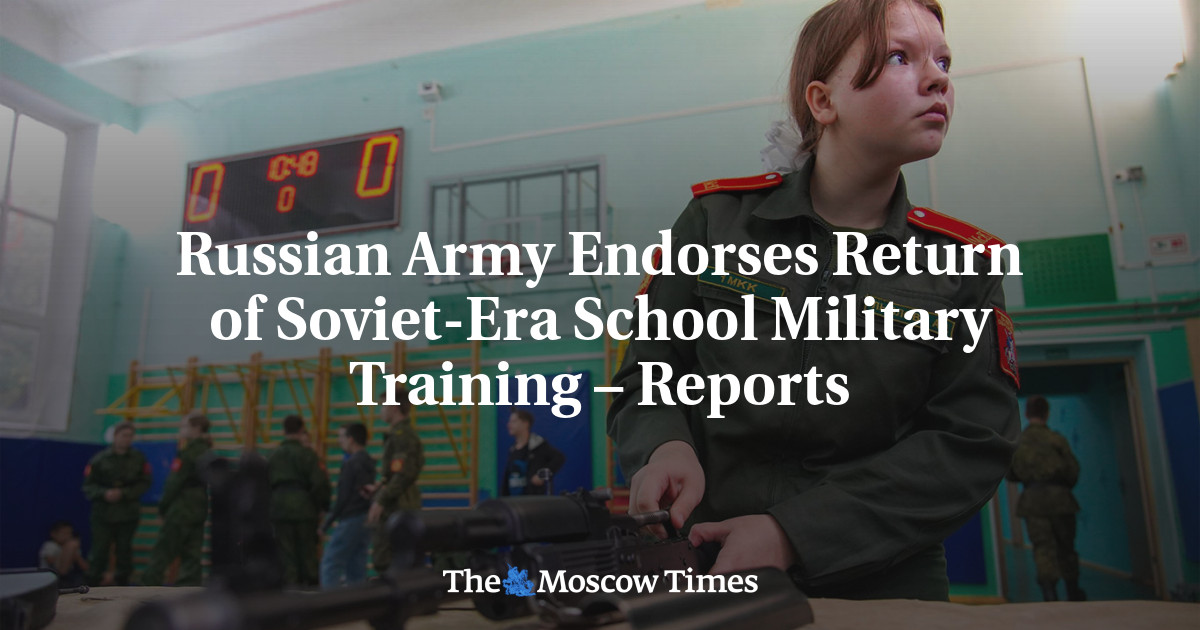
Russia’s Defense Ministry supports reinstating Soviet-era basic military training in high schools, pro-Kremlin media reported Tuesday, citing correspondence between lawmakers and army officers.
Russia retired the so-called “initial military training” program — which taught teens to respond to a nuclear or chemical attack, provide first aid and handle firearms — in 1993. Several attempts to revive the course in the years since have so far failed to gain traction.
Sergei Mironov, the head of the A Just Russia party and a vocal supporter of Russia’s invasion of Ukraine, is the latest figure to champion the reintroduction of basic military training in high schools.
“Adding this subject would systematically prepare citizens for a possible confrontation with the enemy,” he told the pro-Kremlin Izvestia daily.
Mironov has secured the backing of Deputy Defense Minister Valery Gerasimov, who said his ministry would support legislative proposals to reinstate the high school basic training, according to Izvestia.
Gerasimov suggested that schools should allocate at least 140 hours of basic training for 10th and 11th graders, Izvestia reported, citing his letter endorsing Mironov’s proposal.
Both also agreed that the courses should be taught by combat veterans.
It was not immediately clear how fast Russian lawmakers plan to move to revive basic training courses, but Mironov’s colleagues from other political parties in parliament voiced unanimous support for his proposal.
Russia’s Education Ministry is also holding public discussions on its legal act that adds elements of primary military training, including handling of firearms, to an existing course known as “basic health and safety.”
Teachers, meanwhile, told Izvestia that the Russian school curriculum is already overloaded with other new subjects even if they supported the idea.
Russian schools have already added the invasion of Ukraine to the 10th and 11th graders’ history curriculum starting this academic year. Russia officially calls the war a “special military operation” and denies the atrocities it is accused of committing in Ukraine.
Younger students are required to attend weekly patriotic classes called “Important Conversations.” Parents, teachers and lawyers expressed deep concern over what they criticize as state efforts to rally support for the war among children.
In universities, the Kremlin plans to overhaul humanities education with an ideological course on the “fundamentals and principles of Russian statehood” by March 2023, according to a separate report published by the Kommersant daily Tuesday.
The course is part of the Kremlin’s “Russian DNA” project that seeks to shape Russian ideology around five core values, which the publication defines as patriotism, trust in public institutions, social harmony, traditional families and “personal creation.”